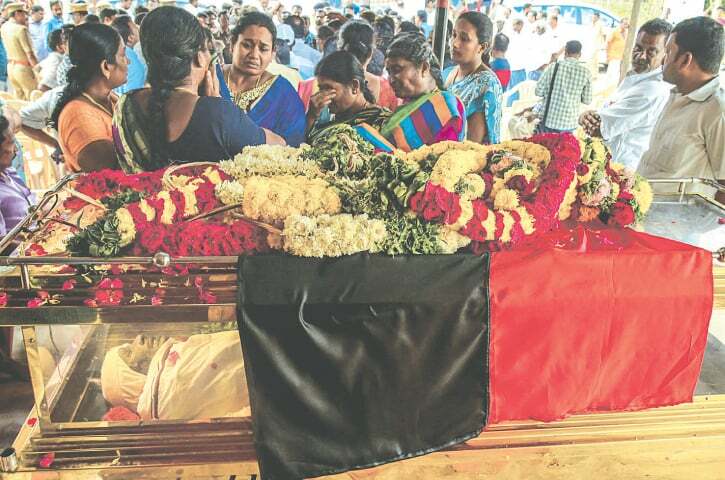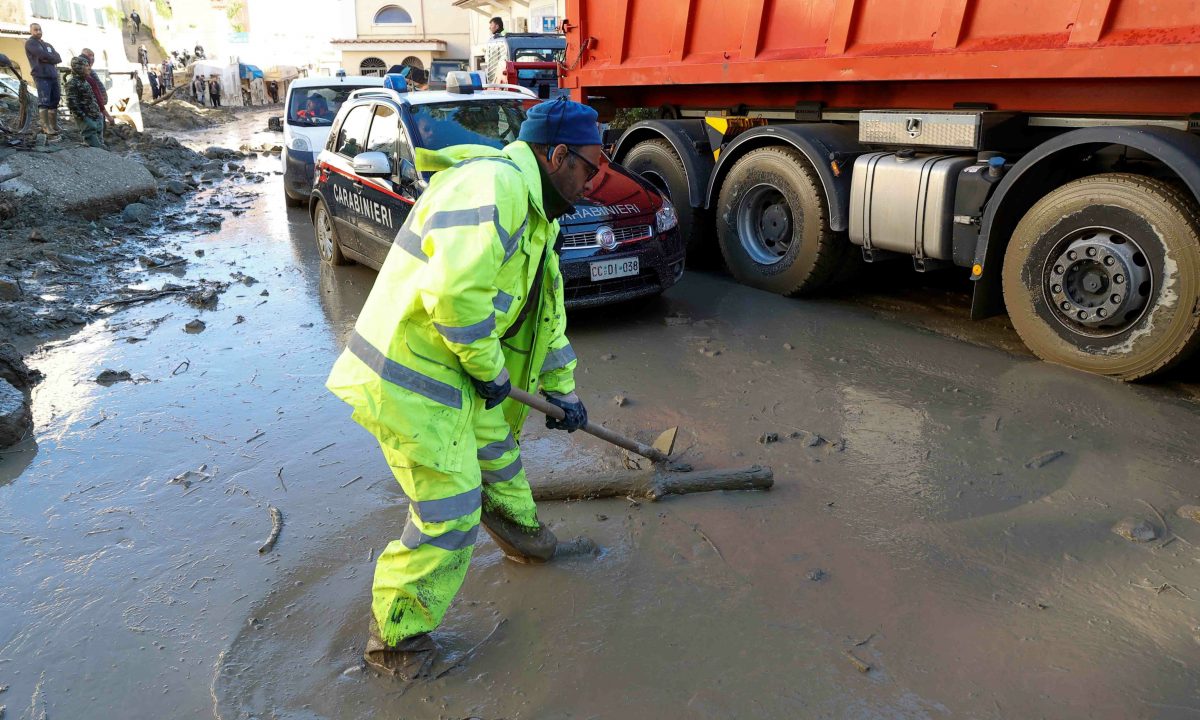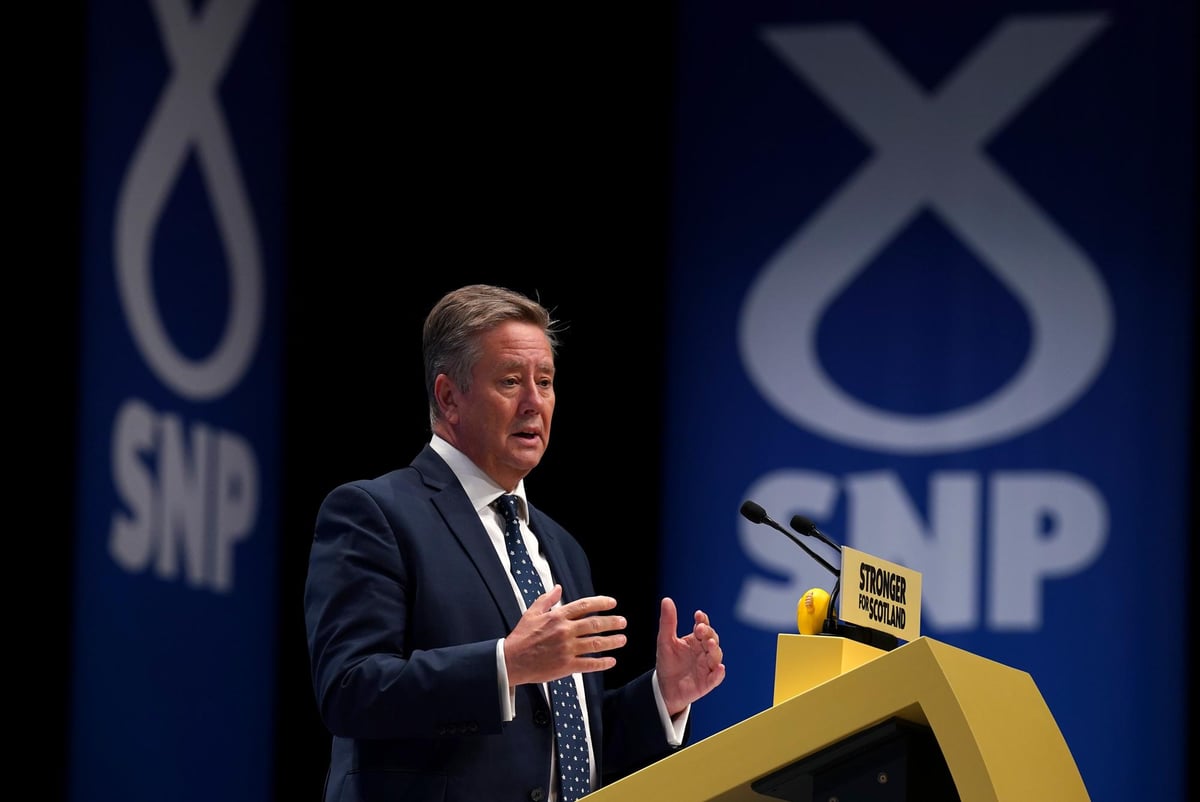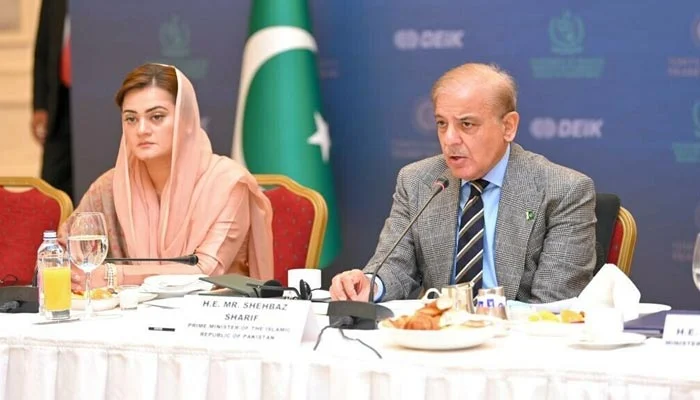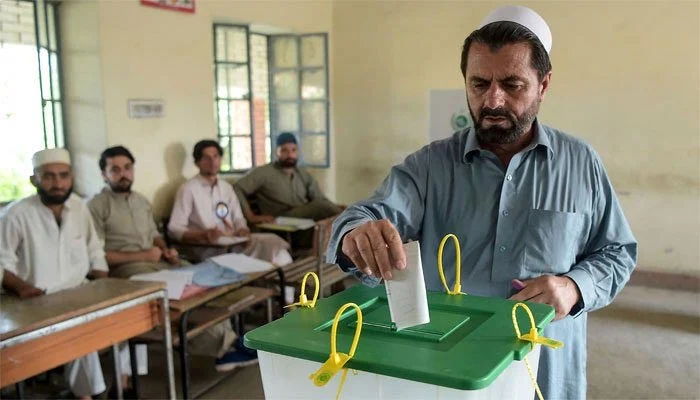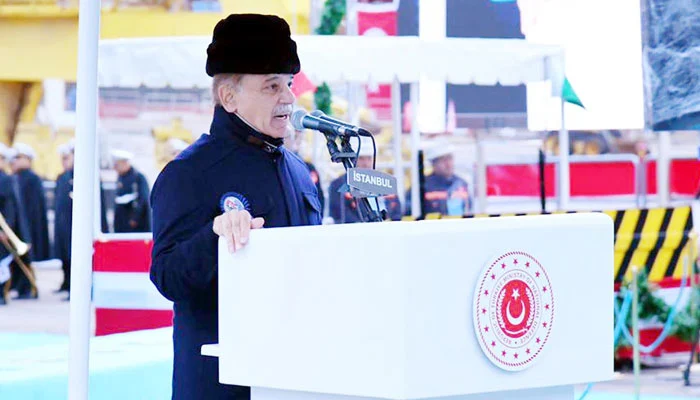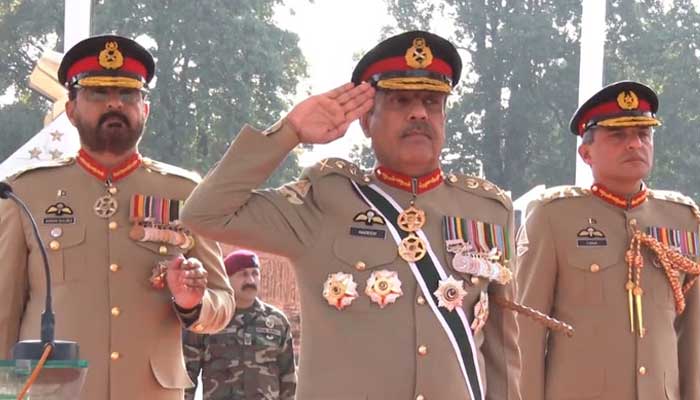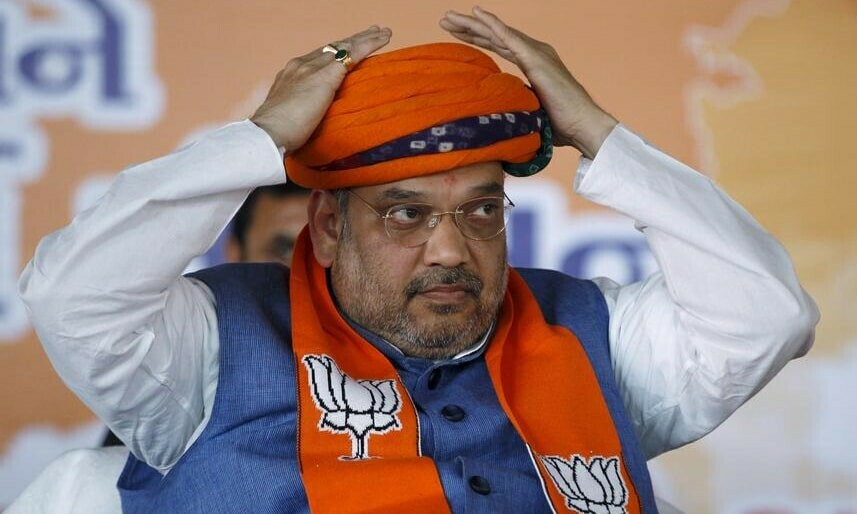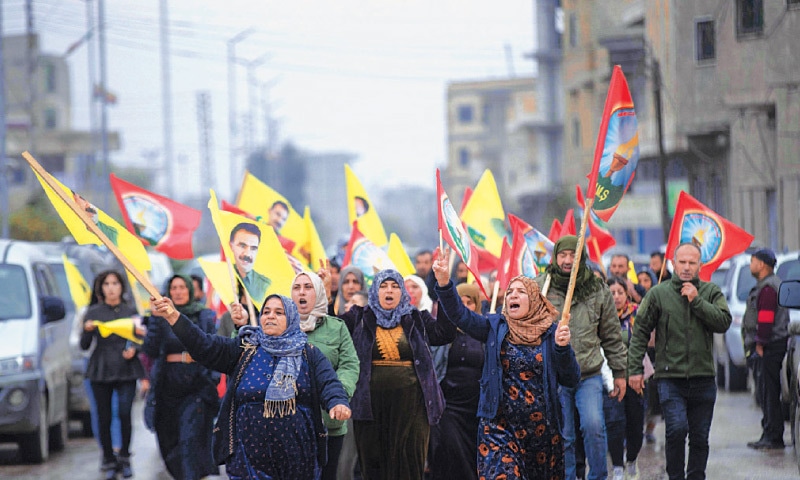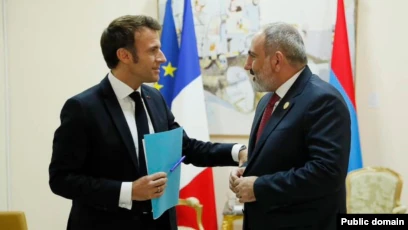ISTANBUL: Prime Minister Shehbaz Sharif Friday highlighting the huge potential in the field of alternate energy in Pakistan and Turkey, called for both countries to join hands for the production of solar, wind and hydel energy to cut the carbon emission and open up new avenues of investment cooperation.
The premier along with Turkish President Recep Tayyip Erdogan Friday launched the third of the four MILGEM Corvette Ships for the Pakistan Navy, PNS Khyber, at the Istanbul Shipyard.
PM Shehbaz, while addressing the launching ceremony, said that the launch of the ship manifested deep bilateral engagement between the two countries in defence cooperation.
The premier further emphasised that it was high time the two countries transformed their ties into a strategic partnership as the world was “envious” of the relationship between two brotherly countries.
On his arrival at the venue, the Turkish president welcomed the prime minister who was accompanied by a high-level delegation.
The prime minister was given a guard of honour as the national anthems of both countries were also played.
The MILGEM project, based on joint collaboration between the two countries, represents a significant milestone in the Pakistan-Türkiye strategic partnership that continues to progress on an upward trajectory.
The launching ceremony for the first Corvette for the Pakistan Navy, PNS Babur, was performed in Istanbul in August 2021 while the groundbreaking for the Second Ship, PNS Badr, was held in Karachi in May 2022.
He said while supporting the Turkish people, our forefathers never knew that Turkey would stand by Pakistan through thick and thin and on all international platforms instead, they had done so out of their religious brotherhood.
Appreciating the “visionary leadership” of President Erdogan, the premier said he had transformed Turkiye into a modern society. He also spoke highly of the social welfare projects executed by the Turkish government even in far-flung areas besides transforming the agriculture and industrial sectors.
The prime minister also urged the defence experts from both sides to enhance their defence production capacity with a view to strengthening cooperation for peace in the region.
He appreciated the role of President Erdogan in brokering a deal between Russia and Ukraine for wheat export for the benefit of developing countries like Pakistan.
PM Shehbaz told the gathering that Pakistan was recently hit by one of the most devastating floods and within no time, Turkiye sent 13 goods trains carrying 72,000 tons of humanitarian goods and 15 Turkey military aircraft carrying food, tent, medicines and medical teams.
Turkiye to launch homegrown fighter jet in 2023
In his address, President Erdogan said Turkiye had achieved great things in the field of defence cooperation.
He told the gathering that four corvettes were being produced under MILGEM project — two locally and two in Pakistan. The final ship will be delivered in February 2025, he added.
The Turkish president said his government would carry Turkiye to first place in the world’s defence industry super league as the country was expanding its domestic naval and air military projects. In 2023, Turkiye’s new homegrown drone and fighter jet will be launched, he added.
‘Launch of third MILGEM manifest strong defence collaboration’
Earlier, Pakistani Minister for Defence Production Israr Tareen said the launch of the third MILGEM manifested brotherhood and strong defence collaboration.
He appreciated the Turkish Navy and Istanbul Shipyard for ensuring the project’s completion within the timeframe.
He told the audience that Pakistan was blessed with immense resources and ongoing China-Pakistan Economic Corridor was set to enhance regional connectivity and maximize trade with Gwadar Port being a focal point.
‘Pakistan and Turkiye enjoy long-lasting ties’
Chief of the Naval Staff Admiral Amjad Khan Niazi said the presence of PM Shehbaz Sharif and Turkish President Erdogan signified the importance of the close relations between the two countries.
He said Pakistan and Turkiye enjoyed long-lasting and deep-rooted ties resting firmly on trust and support based on the principles.
He said the induction of the MILGEM ship would strengthen the Pakistan Navy and acknowledged the commitment by the Turkish ministry of defence and the Turkish Navy for completing the project timely.
Calling Turkiye his “second home” the prime minister recalled the support extended by the people of Pakistan at the time when Turkiye was fighting for freedom.
Pakistan offers cooperation to Turkiye over terrorism
Addressing a joint press conference flanked by Turkish President Erdogan, PM Shehbaz expressed his condolences over the martyrdom of Turkish citizens at the hands of terrorists.
“May Allah almighty grant a place in Jannah to all of them,” prayed the prime minister.
He maintained that Pakistan stands by the people of Turkiye and “brother Tayyip Erdogan” in this hour of grief.
“We have also gone through these tragedies. The people of Pakistan have also paid a huge price — very valuable lives — thousands of people laid their lives to defeat terrorism. So we can fully understand the feelings of brother President Tayyip Erdogan and the people of Turkiye.”
He said, “We would like to offer whatever we have and join hands to beat terrorism of all shade and colours and wipe them out from not only the face of Turkiye and Pakistan but from the face of the earth.”
Pakistan and Turkiye are on the same page against terrorism, he added.


